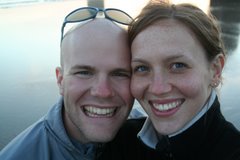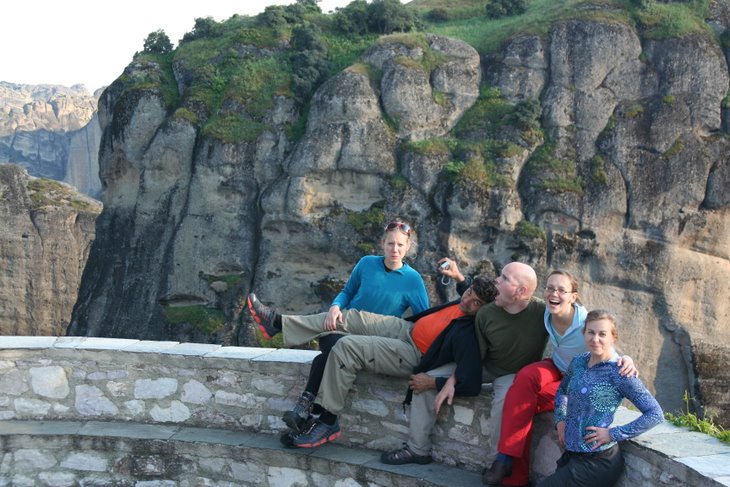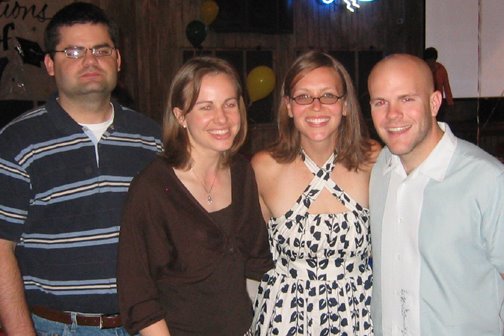During our outreach this Wednesday, I was again assigned to the Filis team heading to the brothels in this neighborhood just northeast of Omonia. The scene was much like last week (see It's All Greek to Me) but I felt a bit more confident knowing what to expect in advance. This week, my partner was Corinna, a bright young Greek woman with a head of curly blonde hair and plenty of self-confidence and style. She was "leading" for the first time, meaning she did the talking with the madames and prostitutes, and I could tell she was nervous. But each conversation went well, with several of the madames inviting us in to sit and talk. The Filis area has been fairly suspicious of Nea Zoi since their route through this area is new and we attract quite a consistent number of curious neighbors asking us why we're here. In the past few months, the interactions with the women here have been difficult, or prevented all together by the madames. One of the bigger obstacles is actually being able to meet with some of the women face-to-face at all. On the other hand, some of the madames are warming up to the teams coming every week with smiles and coffees. It is incredibly encouraging for the staff and volunteers to watch this shift in perception and see doors opening to better relationships with the women.
Emma and I went into one brothel together where the madames seem to change every week, and we weren't sure what to expect. But as we passed through the darkened rooms back to the kitchen, we were introduced to a young, pale girl with long dark hair. She was a new Romanian girl, the madame told us, and didn't speak any Greek or English at all. Looking at her, fatigued and fragile, with bruises and dirty fingernails, we quickly assumed she had likely been trafficked. Her eyes followed our conversation in Greek back and forth, but we had no way of directly communicating with her. I could see Emma's frustration and sadness at the language barrier, something I've struggled with our whole time here. Sitting in front of someone without being able to effectively communicate anything really, when you desperately want to love them and give them crucial information to improve their situation, is maddening. Suddenly I realized we at least had a medical survey translated into Romanian, and we trailed a finger under the top line "Public Health Survey, Athens, Greece" until she brightened and grabbed the paper and a pen from us. She bent over the survey, reading carefully and checking boxes as she went, her tongue sticking barely out of her mouth in concentration. As I accumulated our survey data later that afternoon, she was our only Romanian survey, and the checked boxes our only communication with her so far.
Before our time here in Athens, the issue of trafficking vaguely appeared on my radar from news articles, but I didn't understand much of the details or the global scale of the problem. We are seeing a small piece of the overall picture in Europe with Nea Zoi, but even interacting with the women nearly daily, I found it hard to really grasp. When we were over at Emma and Yannis' apartment for dinner last weekend, she let us borrow a movie/miniseries "Human Trafficking" with Donald Sutherland and Mira Sorvino. Combined with our experiences here with the women, the movie was painfully educational and eye-opening. I hesitate to recommend it with its graphic scenes and sometimes agonizing reality, but it is certainly a quick and pointed lesson on the issue of trafficking. During our viewing, I found myself watching carefully for portrayals of the women's responses to their situations. Many of the women we meet here already made clear psychological adjustments to avoid continuing emotional trauma and strain, even the portion of the population who weren't trafficked. The concept of just surviving is very prevelant. And as we continue surveying, many of the women are requesting psychological counseling. The untangling of the emotional splits they require to survive can take years. Complicating that process though, it is less threatening and traumatic for the women to simply continue the dual existance. Recognizing the horrors of their daily life, and reconnecting their identities with reality, is a terrifying step. To maintain status quo, many women will refuse to admit being trafficked, much less turn in their traffickers or leave prostitution, along with fear of retribution or shame returning home or many other reasons. Once they have paid off their "debt" to the trafficker - often 50,000 euros or more - the women have fully adjusted to the split life of prostitution and rationalize staying longer to make money for themselves since they've already been damaged.
All of this to say that the situation here is far more complex than I could have imagined. It's not a simple as just offering the women a way out and them jumping at it with relief, and everything turning out just fine. The process of helping the women leave this situation requires trust and long-term relationships, with provisions for the overlooked medical problems and spiritual and emotional issues in the interim. Before this, I had no idea.
Local time in Athens
Monday, April 30, 2007
Subscribe to:
Post Comments (Atom)






No comments:
Post a Comment